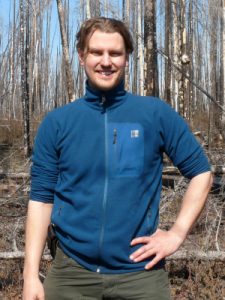
David Olefeldt - PI
David is the Campus Alberta Innovates Program (CAIP) research chair in Wetland Restoration and Catchment Management at the Department of Renewable Resources at University of Alberta. Research interests include peatland biogeochemistry and catchment science, with a focus on peatland regions within the boreal and subarctic. Read abbreviated CV here.
Current Lab Members
Matt Munson - MSc Student
Fares Mandour - MSc Student
Kasha Kempton - MSc Student
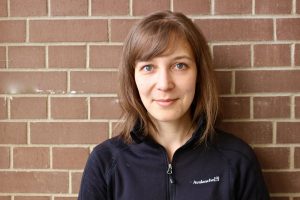
Julia Orlova - PhD Candidate
Julia studies the delivery of dissolved organic matter from forested catchments across Canada, with a focus on the boreal plains of central Alberta. Her focus is both on the variability in dissolved organic matter characteristics from different land cover types, and at different times of the year, but also links between these characteristics and metrics of water treatability for drinking water purposes.
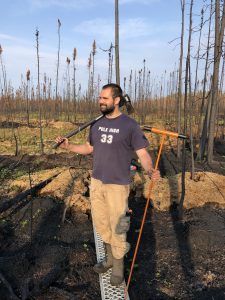
Christopher Schulze - PhD Candidate
Christopher studies the greenhouse gas balance of boreal peatlands, to determine what the main influences of wildfire and permafrost thaw are at the landscape level. He has field studies focusing on nitrous oxide and methane emissions from various peatland types, and also runs eddy covariance measurements from two burned peatlands. Upscaling his field results by GIS techniques will help him to predict future changes in net radiative forcing on an ecozone scale.
@rappeatloaf
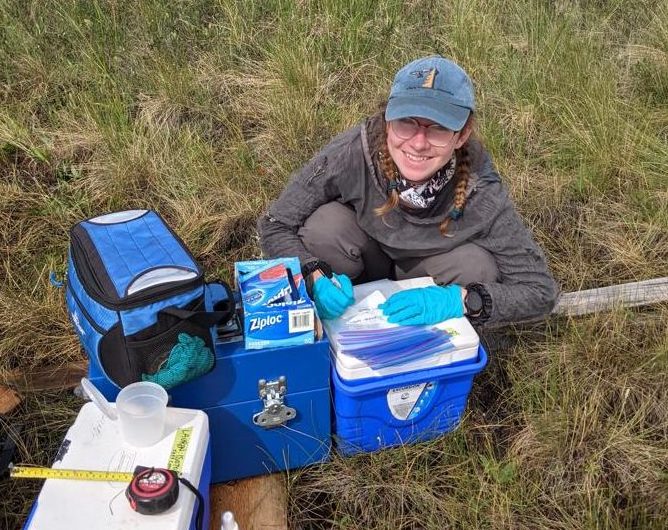
Renae Shewan - MSc Student
Renae joined the CAWS lab after graduating with her Bachelor of Environmental Science at the University of Alberta. She was a field assistant in 2020, held a lab manager position from 2020-2021, and is continuing her studies on mercury dynamics downstream of thawing permafrost peatlands in Northern Alberta and the Dehcho as a master's student.
@RenaeShewan
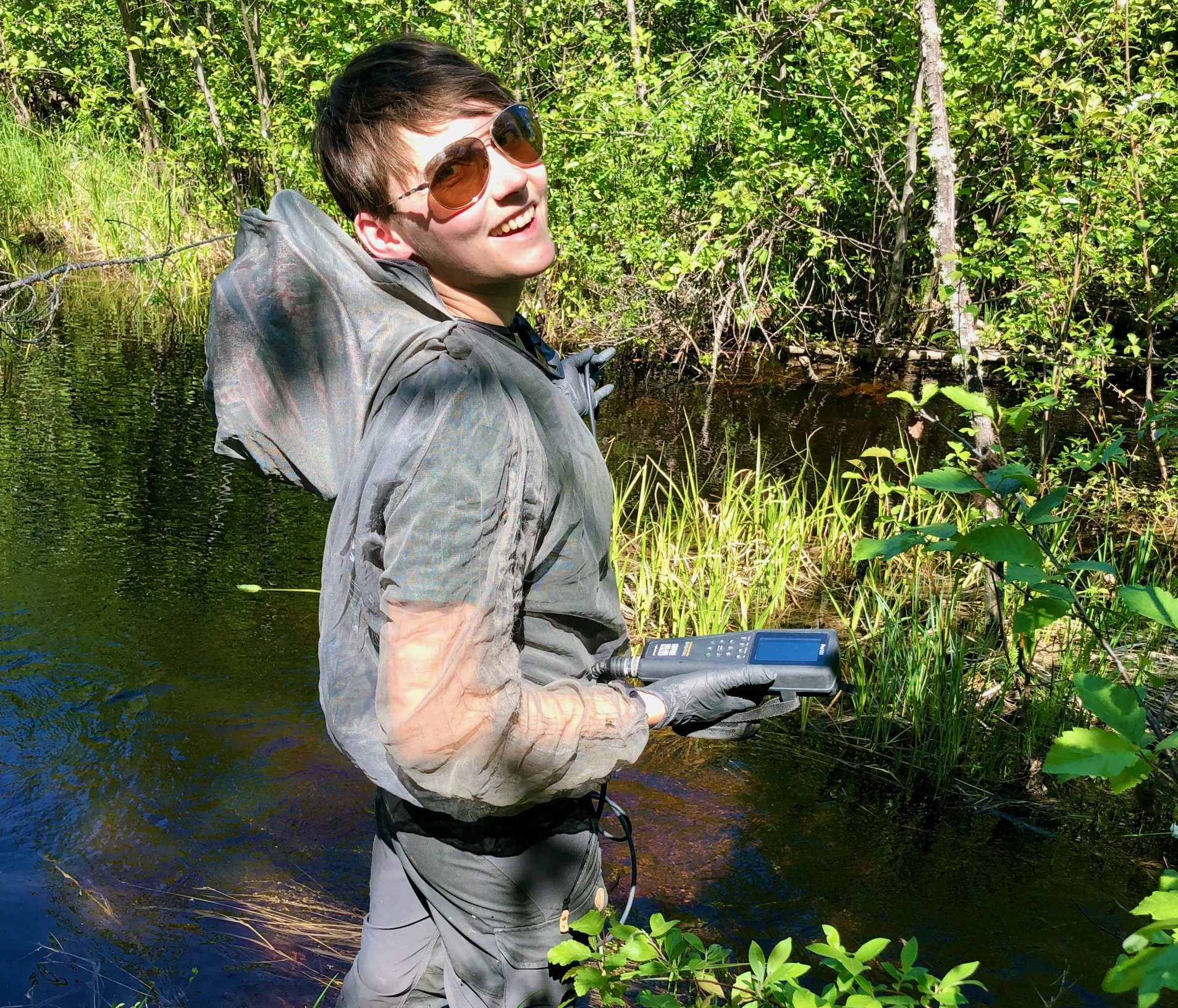
Jessica Lagroix - MSc Student
Jessica is studying the impacts of ongoing beaver pond expansion in the Taiga Plains, focusing on downstream water chemistry, including mercury and methylmercury concentrations.
Previous Lab Members
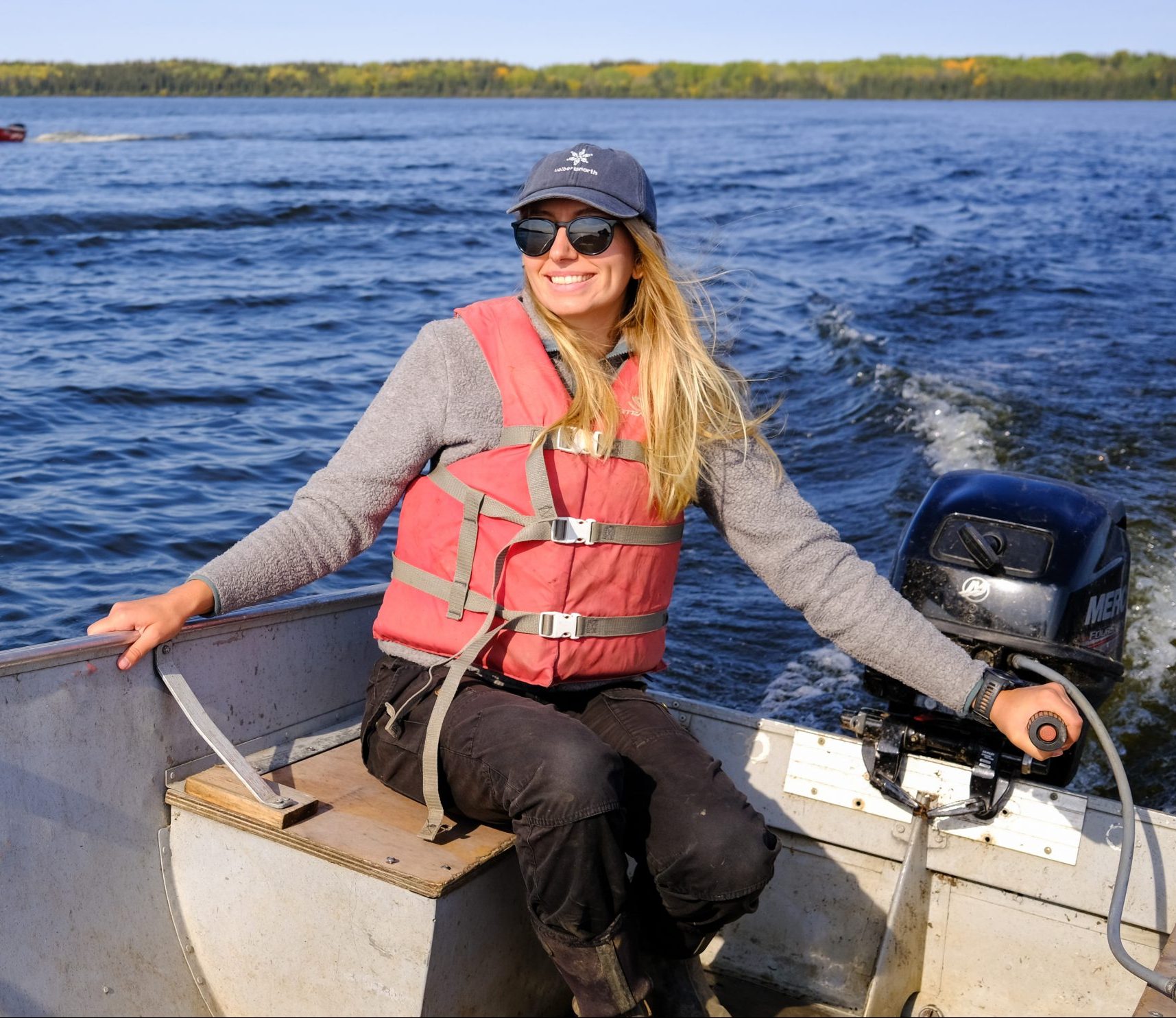
Lauren Thompson - PhD Candidate
Lauren studies the effects of peatland permafrost thaw on the mobilization of mercury and production of methylmercury, with fieldwork across permafrost zones from Inuvik to central Alberta. She has partnered with the Dehcho AAROM program to monitor rivers in the Dehcho of the Northwest Territories.
@L_aurenThompson
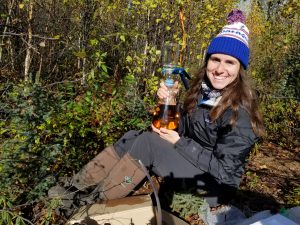
Rebecca Frei - PhD Candidate
Rebecca studies impacts of peatland disturbances on the mobility of aged soil organic carbon, particularly in the form of dissolved organic matter to downstream ecosystems.
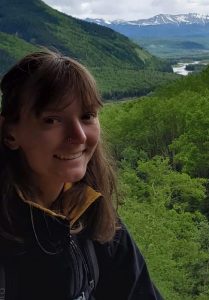
Kate Marouelli - Undergraduate Researcher
Kate is an aspiring climate scientist studying Earth and Atmospheric Sciences at the University of Alberta. Her studies include understanding how permafrost thaw in the Taiga Plains region affects greenhouse gas fluxes and water chemistry of fens of different productivity.
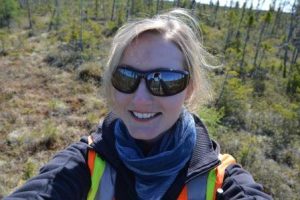
Lorna Harris - Postdoctoral Researcher
Lorna studies effects of peatland disturbances on vegetation composition and greenhouse gas exchange, in order to understand successional trajectories of recovery following these disturbances.
@lorna_h1
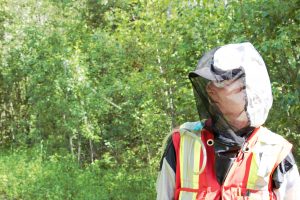
Emily Pugh - PhD
Emily studied water quality on the Boreal Plains in central Alberta, with a focus on both spatial and long-term temporal variability in lake water chemistry. Her research helped us understand the vulnerability of water quality and lake terrestrialization to both climate variability and human disturbances.
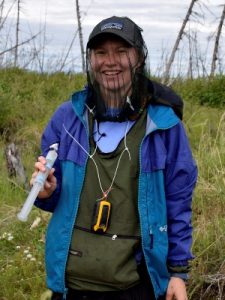
McKenzie Kuhn - PhD
Kenzie's thesis focused on understanding the consequences of thermokarst lake expansions on the Taiga Plains in western Canada with regards to greenhouse gas emissions. She examined the biogeochemistry of peatland lakes with variable groundwater connectivity, and carried out lab incubations to understand the potential for greenhouse gas production.
@Kenzco4
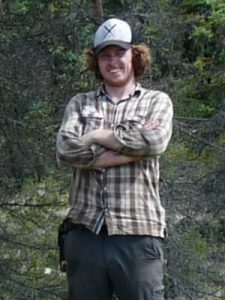
Liam Heffernan - PhD
Liam's project focused on the long-term implications of permafrost thaw for peatland carbon storage and greenhouse gas balance. His project combined several research approaches, including peat stratigraphy and dating, soil flux measurements, and below-ground profiles of dissolved and gaseous carbon.
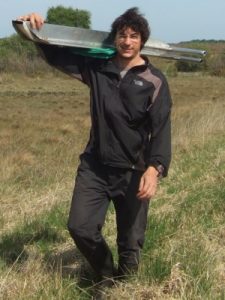
Cristian Estop-Aragones - Post-doctoral Researcher
Cristian's broad research interests are carbon cycling in permafrost regions and feedbacks to climate change, biogeochemistry of peatlands, and belowground soil redox dynamics linked to hydrology. Cristian is an active member of the Permafrost Carbon Network, and lead a synthesis effort on the use of 14C within the permafrost region.
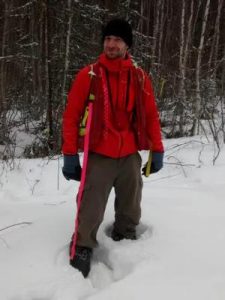
Alexander Mertens - MSc
Alex's project aimed to understand controls on lake water chemistry in low relief glaciated regions of Canada. He used data from thousands of synoptically collected lake and pond water samples along with landscape characteristics to create an overall generalized conceptual model that can be adapted to the range of lake physiographic settings across the Western Boreal Forest.
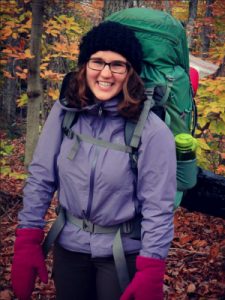
Carolyn Gibson - MSc
Carolyn's MSc thesis focused on understanding the role of fire on permafrost stability and carbon cycling on peat plateaus in the discontinuous permafrost zone. Her thesis combined remote sensing approaches and field data. She was co-supervised by Mike Flannigan.
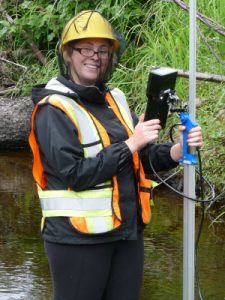
Katheryn Burd - MSc
Katie's project investigated the implications of fire and permafrost thaw in peatlands for the export and biodegradability of dissolved organic carbon (DOC). She monitored water quality at both burned and unburned catchments in southern Northwest Territories with state-of-the-art instrumentation for detecting rapid shifts in DOC concentrations and composition.
